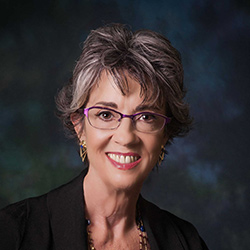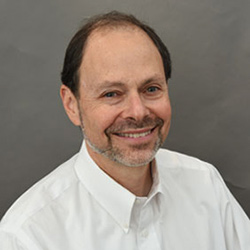The leaders of the new LTSS Center explain why its creation will benefit research in aging while making the work of LeadingAge members more visible.
In May 2017, LeadingAge joined with the Gerontology Institute at the University of Massachusetts Boston to create a new research center called the LeadingAge LTSS Center @UMass Boston. The new LTSS Center, with offices in Washington, DC, and Boston, MA, collaborates with the Center for Consumer Engagement in Health Innovation at Community Catalyst.
LeadingAge sat down with LTSS Center Co-Directors Robyn Stone and Marc Cohen to talk about the LTSS Center’s first 18 months, and about their hopes and dreams for its growth.
LeadingAge: What do you want our members to know about the LeadingAge LTSS Center @UMass Boston?
Marc Cohen: The LTSS Center brings together 3 highly respected organizations. We’ve got the research team at LeadingAge, which has incredible expertise in issues around housing, service provision, caregiving and workforce. We have the UMass Boston Gerontology Institute faculty, many of whom have outstanding research credentials in such areas as long-term care financing and service delivery. And we have our relationship with Community Catalyst, which gives us the ability to build policy from the ground up through consumer advocacy.
These connections put the LTSS Center in a tremendous position to bring the work we do to the policy world, to the research world, to the practice world, and to the consumer world. You rarely see all these connections under one research umbrella.

LeadingAge: Will the partnership between LeadingAge and UMass Boston change the LeadingAge research agenda?
Robyn Stone: Our partnership with UMass Boston won’t change the work that LeadingAge has been doing for years in the areas of workforce, nursing home quality and housing plus services. But this new partnership will help both LeadingAge and UMass Boston broaden their research capacity considerably. We’ve already brought more researchers to our team and have started tackling a broader set of research questions through a growing number of research projects.
For example, Marc and his Boston-based team are contributing a breadth of knowledge and expertise around long-term care financing, which is so needed right now. Researchers at UMass Boston also have lots of expertise on the home care side that will help us bring our work in that area to the next level. Plus, our Washington researchers are sharing their expertise in qualitative research, and their deep understanding of the practice world, with our academic colleagues in Boston.
 Marc Cohen:
Marc Cohen:I’m also really excited about giving UMass Boston graduate students opportunities to work on projects with our researchers in Washington and Boston. We’re hoping to develop a whole new cohort of applied researchers by getting those students excited about research questions that relate to our field. Not only will their involvement enhance the research agenda of the LTSS Center, but I believe it will help guarantee a bright future for applied research in the LTSS field.
LeadingAge: How will the new center benefit LeadingAge members directly?
Robyn Stone: We’re looking forward to using our increased capacity to expand the work we do to help member organizations adopt evidence-based programs and evaluate whether those programs are working. We’ve already started working with LeadingAge Massachusetts to move forward on a housing with services agenda in Massachusetts, because we now have more researchers who know how to make connections between policy people, providers, and researchers. This is a model of state-level support we’d like to expand to other states.
Marc Cohen: Our work in consumer engagement is another concrete example of how our expanding capacity can help LeadingAge members. Consumer engagement is becoming much more important in our field, and not just from a marketing perspective. For a whole host of reasons, providers can achieve better outcomes if they are successful in engaging consumers.
We have experts, both at Community Catalyst and at the Gerontology Institute, who are heavily involved in this area. For example, we’re already working with PCORI (the Patient-Centered Outcomes Research Institute) and CJE SeniorLife (a LeadingAge member in Chicago) to improve practice in the field of aging services by teaching researchers how to include the consumer perspective when they design their studies.
Editor’s note: The CJE project is covered elsewhere in this issue. See “Bureau of Sages: Can Older Adults’ Advice Lead to Better-Focused Research?”
LeadingAge: The LTSS Center has been in operation for 18 months now. Where would you like to be 18 months from now?
Robyn Stone: So far, we’ve been able to create a unique value by combining a national membership association, a university-based gerontology center, and a consumer-advocacy organization. I’m convinced that these connections will help our varied audiences view the LTSS Center as an independent, objective, and highly respected thought leader in the field of aging. I’m looking forward to building on that credibility over the next year.
The best way we can serve LeadingAge members, in my view, is to make sure the work those members do—and the research that supports that work—are more visible to a much broader audience of providers, researchers, funders, policy makers, and consumers. That’s why we’ll be working hard over the next 18 months to make sure our new LTSS Center website is incredibly robust, and that the LeadingAge LTSS Center @UMass Boston becomes the place to go for cutting-edge research in the field of aging services.
